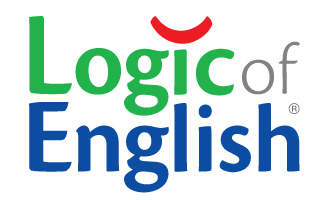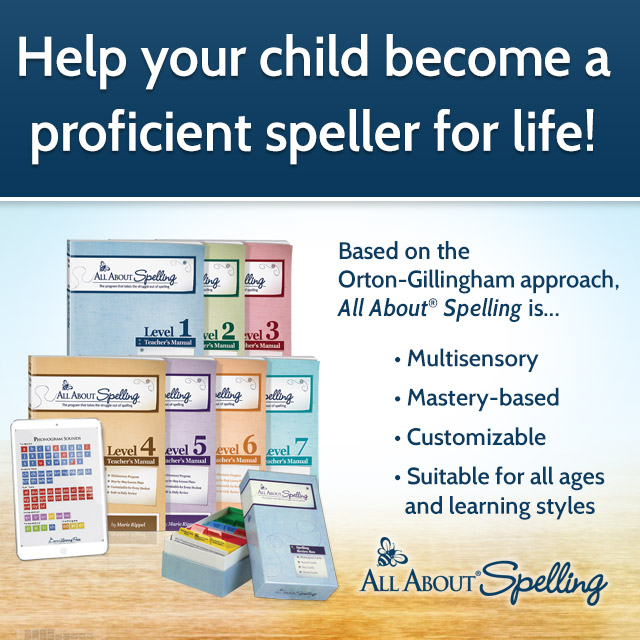How to Improve Spelling : Overcome Chronic Spelling Problems
Overcome Your Child’s Chronic Spelling problems: how to improve spelling
Does your child use phonetic spelling even though he’s had YEARS of spelling instruction? Are you trying to figure out how to improve spelling ? Has your child received specific, direct instruction in spelling, but nothing seems to stick?
If you’re wondering how to improve spelling, I have some answers for you. This page will explain the research-proven method we used. I’ll tell you why it works, the benefits of using it, then explain HOW to use the method.
I had remediated my son’s reading issues due to dyslexia, but after working on spelling for years, he still had difficulty spelling basic words like who (ho), what (wat), when (wen), etc. Phonetic Spelling was deeply ingrained into his mind! I was desperate to figure out how to improve spelling.
NOW my son spells EXCELLENTLY. Pssst.. want to know our secret?
I embarked on a trail of research to find how to improve spelling.
“How to Improve Spelling when all else fails?”
I read countless studies about how to teach spelling to a child who has dyslexia. Research shows that self-correcting one’s own spelling mistakes is the best way to improve spelling. This may seem like a weird solution, but keep reading!
Self-correction is not a method used in lieu of a formal spelling program. You use self-correction after or in conjunction with a phonemic spelling program.
Explanation of How Self-Correction Improves Spelling
When a child with dyslexia is taught with a formal spelling program, he may master the phonemes (letter-sounds). However, he may apply what he knows incorrectly to a wide variety words. For example, words like “what” might be spelled “wat,” or “wrong” may be spelled “rong.”
When self-correcting, your child only works with words he doesn’t remember how to spell. The correction of the same misspellings over and over works to improve your child’s spelling. When your child sees the right word in a list, it allows your child to use his memory-recall pathways to recognize the word. The more he times he uses the recall pathway for that word, the more likely he is to remember the correct spelling in the future.
Simply put, the self-correction method is how you improve spelling. It is what works best for overcoming problems with phonetic spelling when a child knows the spelling rules. The self-correction method teaches a child to pay closer attention to spelling rules.
Benefits of he Self-Correction Method for Improving Spelling
Although self-correcting is a relatively tedious process, it does
- Help a child recognize the difference between a word’s Phonetic Spelling and the word’s actual spelling,
- Inspire a child to recall the correct spelling more often when he is initially writing his composition, and
- Self-correction teaches him valuable editing skills in correcting his own work. Spelling will improve over time, but it is a rather slow process because generally children with dyslexia don’t love writing. Therefore, they don’t generally write compositions with many complex words.
When we started using the self-correction method, we began with a limited number of corrections. I wanted to avoid overwhelming my son.
I recommend you start by having your child correct the first two sentences in a piece of writing. After your child makes fewer mistakes, then have your child correct the first paragraph.
Advance the amount of self-correction as your child develops better self-correction skills. For example, when he has fewer mistakes, let him self-correct two paragraphs. Move slowly towards correcting the whole paper.
Alternately, you could start with self-correction of all three letter words, then four letter words, five letter words, and so on.
What Exactly is the Self-Correction Method?
 Self-correction is difficult for a child that can’t spell well, so we used a couple of tools. First, when my son would write a paper, I would simply highlight every spelling error (you can see an example of how I highlighted on the second-to-last page in our work samples). I recommend using a word processor with spell checker that will highlight or underline misspelled words, or that you highlight spelling mistakes with a highlighter when the words are written on paper.
Self-correction is difficult for a child that can’t spell well, so we used a couple of tools. First, when my son would write a paper, I would simply highlight every spelling error (you can see an example of how I highlighted on the second-to-last page in our work samples). I recommend using a word processor with spell checker that will highlight or underline misspelled words, or that you highlight spelling mistakes with a highlighter when the words are written on paper.
Second, we bought our son a Franklin Speller to use when figuring out the correct spellings for words. When the child writes a word, and it is underlined in red in the word processor’s spell checker or is highlighted as a spelling error, the child types the misspelled word into the Franklin Speller.
Assistive Technology for Spelling
Franklin Webster's Spelling Corrector NCS-100 - Advanced Phonetic Spell Correction Technology - Type Words as They Sound for Quick and Accurate Suggestions
$29.99 (as of 20 December 2025 10:59 GMT -05:00 - More infoProduct prices and availability are accurate as of the date/time indicated and are subject to change. Any price and availability information displayed on [relevant Amazon Site(s), as applicable] at the time of purchase will apply to the purchase of this product.)A child with dyslexia needs this type of phonemic assistance in self-correcting because he often spells words quite differently than the actual spellings. With the Franklin Speller, a child with dyslexia can spell a word phonemically, like “sirip.” The Franklin Speller figures out that the speller might mean “syrup” or “stirrup”. The Franklin Speller will present a list of words your child may have meant as choices. Your child can read the definitions provided through the Franklin Speller’s dictionary function to see which one is the one he child meant to spell. Your child can then correct the spelling for the word he intended to write.
Once the child has gotten the “process” of self-correcting using a Franklin Speller mastered, it won’t take as long for him to correct his spelling mistakes. It takes quite awhile the first several times because your child is figuring out how to use the Franklin Speller. Your child may still make a lot of spelling errors, but he will become much more efficient at correcting them over time, which is a highly valuable skill later in life.
Now You Know How to Improve Spelling
Self-correction is a great method for helping a child learn and remember correct spellings. However, you’ll also need to specifically teach your child all of the spelling rules. You may want to visit our Spelling for Students with Dyslexia or other Spelling Difficulties page for information about effective spelling programs. If you’d like to jump ahead to the most effective Orton-Gillingham spelling program I know of, then you’ll want to check out All About Spelling (This is an affordable program that is comprehensive and based upon Orton-Gillingham methods).








